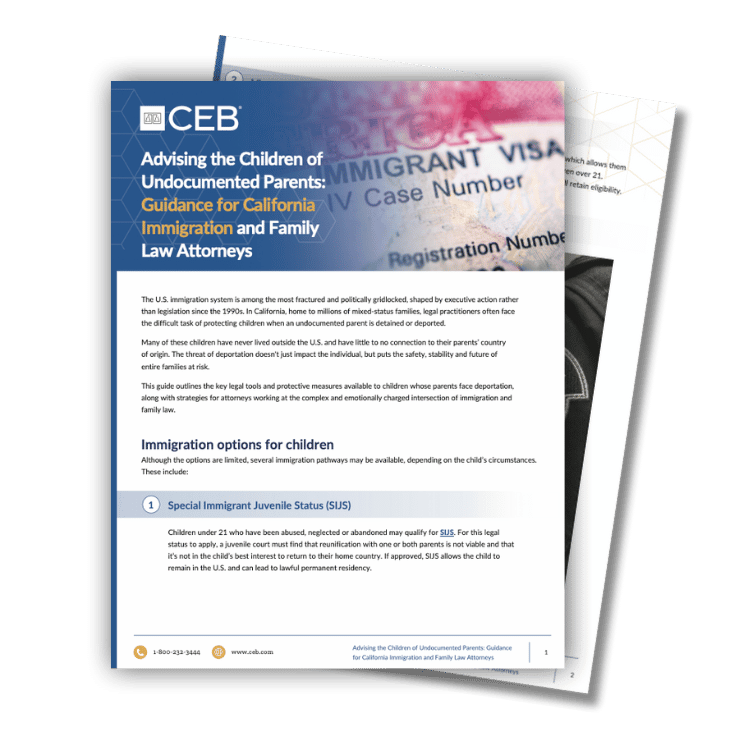
Advising the Children of Undocumented Parents
Legal Guidance for California Attorneys Navigating the Overlap of Immigration and Family Law
In California, attorneys are increasingly called on to guide children through the legal aftermath of a parent’s detention or deportation.
For many of these children — some undocumented, some U.S. citizens — the consequences can be life-altering. This white paper provides practical, up-to-date guidance for immigration and family law attorneys working to protect vulnerable children in these high-stakes situations.
Whether you’re representing a minor seeking lawful status, preparing for the guardianship of a U.S.-born child, or coordinating between courts, this resource outlines the strategies that make a lasting difference.

What You’ll Learn
- Immigration Options: SIJS, VAWA, U/T visas, asylum assessments, TPS, and relief through cancellation of removal
- Family-Law Paths: Short-term affidavits, guardianship petitions, and adoption steps that comply with immigration law
- Integrated Legal Strategy: How to sync immigration filings with guardianship, avoid timing conflicts, and build cohesive cases
- Child-Centered Advocacy: Tactics for using school, medical, and community records to bolster “best interest of the child” arguments
- Trauma-Informed Practice: Tips for age-appropriate communication and working with social services, mental health professionals, and advocates
Navigate these California immigration and family law obstacles with confidence
Immigration Relief Options for Children: Key legal pathways available to undocumented minors and children of undocumented parents
- Special Immigrant Juvenile Status (SIJS) for children who’ve been abused, neglected, or abandoned
- Violence Against Women Act (VAWA) protections for children abused by a parent
- U and T visas for victims and witnesses of crimes or trafficking
- Asylum considerations — when to proceed and when to exercise caution
- Temporary Protected Status (TPS) eligibility and what it offers
- Cancellation of removal and long-term immigration planning
Family Law Tools for Emergency and Long-Term Planning: Legal options California families can use to protect children when a parent may be removed
- Caregiver authorization affidavits for short-term needs
- Guardianship petitions through the probate court to avoid foster care
- Adoption considerations and the strict conditions that apply under immigration law
Best Practices for Cross-Disciplinary Advocacy: Coordinating timelines and unique standards for immigration and family law cases
- Coordinate legal strategy across disciplines
- Develop strong, consistent supporting documentation
- Avoid unintended conflicts between court processes

